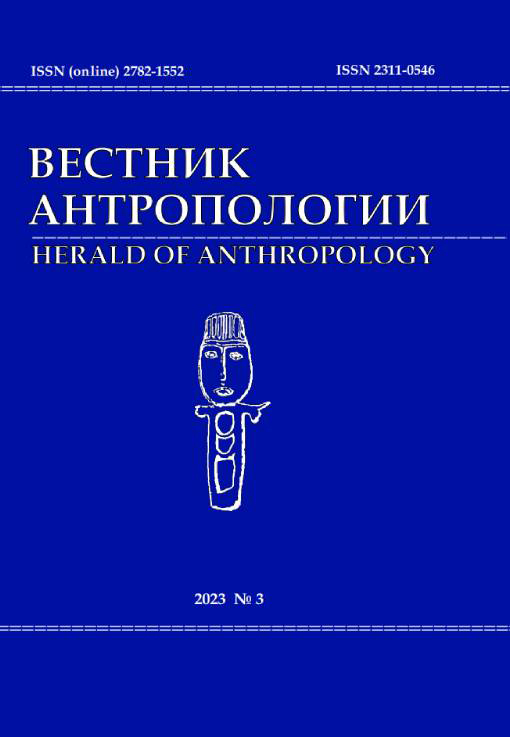Религиозное пространство Казани: идентичности и практики (по материалам этносоциологического исследования)
DOI: 10.33876/2311-0546/2023-3/303-318
Ключевые слова:
идентичность, религиозность, трансмиссия ценностей, практики, этничностьАннотация
Актуальность статьи обусловлена необходимостью изучения особенностей конфессионального пространства крупных полиэтничных городов Российской Федерации. Статья написана на материалах этносоциологического исследования, проведенного в г. Казань в 2021 г. Цель работы заключается в анализе идентичности и практик трех численно преобладающих в конфессиональном пространстве Казани социальных групп – мусульман, православных и неверующих (атеистов). Авторами рассмотрена содержательная сторона восприятия верующими своей конфессиональной идентичности, описана динамика состояния внутри- и межгрупповых (межконфессиональных) отношений в оценках верующих и неверующих. Проанализирован общий социально-психологический настрой в изучаемых группах. Сделан вывод о том, что тренд на «мирное сосуществование» разных мировоззрений подкрепляется ростом в группах верующих численности тех, кто занимает позицию осознанного выбора религии самим человеком и самостоятельным приходом к вере. Показано, что неверующие горожане чаще настроены более критично, чаще высказываются против усиления роли религии в различных сферах общественной и политической жизни. Материалы статьи могут быть полезными для социологов, психологов, социальных и культурных антропологов, политологов, а также представителей органов и структур, курирующих вопросы политики в этнической и религиозной сферах.






















